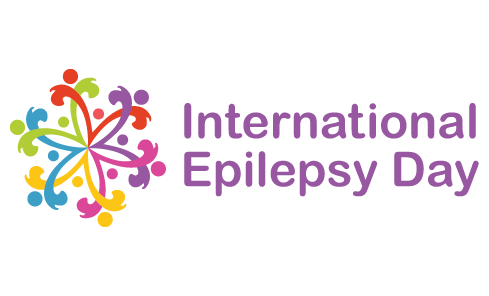International Epilepsy Day: Ugo Basile for scientific research on epilepsy

International Epilepsy Day is a global event celebrated annually on the second Monday in February. The initiative is organized by the International Bureau for Epilepsy and the International League Against Epilepsy to promote awareness on epilepsy right around the world.
What is Epilepsy?
Epilepsy is a neurological condition which affects the nervous system. Epilepsy is also known as a seizure disorder. It is usually diagnosed after a person has had at least two seizures that were not caused by some known medical condition. Epilepsy affects around 50 million people worldwide, making it one of the most common neurological diseases globally.
Causes
Although many underlying disease mechanisms can lead to epilepsy, the cause of the disease is still unknown in about 50% of cases globally. The causes of epilepsy can be structural, genetic, infectious, metabolic, immune and unknown.
Examples include: brain damage from prenatal or perinatal causes, congenital abnormalities or genetic conditions with associated brain malformations, a severe head injury, a stroke that restricts the amount of oxygen to the brain, an infection of the brain such as meningitis, encephalitis or neurocysticercosis, certain genetic syndromes or a brain tumour.
Treatment of Epilepsy
Up to 70% of people living with epilepsy could become seizure free with appropriate use of antiseizure medicines. Discontinuing antiseizure medicine can be considered after 2 years without seizures and should take into account relevant clinical, social and personal factors. A documented etiology of the seizure and an abnormal electroencephalography (EEG) pattern are the two most consistent predictors of seizure recurrence.
Ugo Basile for scientific research on epilepsy (ECT)
In the realm of epilepsy research, Ugo Basile products play a pivotal role, offering essential tools for conducting experiments and advancing our understanding of this neurological disorder. Let's delve into how Ugo Basile products have contributed to a couple of recent studies in epilepsy research.

The specific instrument to induce seizures is the ECT, which is largely used in standard and 6Hz models with auricular or corneal electrodes. We report below a couple of examples where the ECT, the Fear Conditioning and the RotaRod are used in epilepsy research.
Comprehensive list of ECT papers.
The study "Epilepsy in a mouse model of GNB1 encephalopathy arises from altered potassium (GIRK) channel signaling and is alleviated by a GIRK inhibitor" explores epilepsy in a mouse model of GNB1 encephalopathy. Researchers found that abnormal activation of potassium channels (GIRK) contributes to epileptic seizures in this model. By using a GIRK channel inhibitor, they demonstrated the alleviation of epileptic symptoms, suggesting a potential therapeutic approach. Ugo Basile RotaRod and Electroconvulsive threshold (ECT) devices are utilized to evaluate the inhibitor's effects on seizure symptoms in mice, providing crucial data for epilepsy research and therapy development.
Read the full open access research: https://doi.org/10.3389/fncel.2023.1175895
The study "Epilepsy-linked kinase CDKL5 phosphorylates voltage-gated calcium channel Cav2.3, altering inactivation kinetics and neuronal excitability" delves into the role of the CDKL5 kinase in epilepsy. Specifically, it examines how CDKL5 phosphorylation affects the voltage-gated calcium channel Cav2.3, leading to changes in inactivation kinetics and neuronal excitability. By elucidating these molecular mechanisms, the study sheds light on the pathophysiology of epilepsy associated with CDKL5 mutations, offering potential insights for targeted therapeutic interventions. Researchers utilize Ugo Basile RotaRod to assess the effects of epilepsy-associated mutations or treatments on motor function, providing valuable insights into the neurological consequences of epilepsy and potential therapeutic interventions. Ugo Basile Fear Conditioning was used to investigate the neural circuits and molecular mechanisms underlying fear-related behaviors, which can be perturbed in epilepsy. By understanding how epilepsy affects fear learning and memory processes, researchers can uncover novel therapeutic targets for managing epilepsy-related cognitive impairments and emotional dysregulation.
Read the full open access research: https://www.nature.com/articles/s41467-023-43475-w
For more information about Ugo Basile devices cited in the researches:
ECT: https://ugobasile.com/products/categories/miscellaneus-ect-lmd/ect-unit-electroconvulsive-therapy-threshold-detection
RotaRod: https://ugobasile.com/products/categories/motory-coordination/rotarod-for-mice-and-rats
Fear Conditioning: https://ugobasile.com/products/categories/behaviour-conditioning-reward/fear-conditioning-system
For general information about epilepsy:
https://www.who.int/news-room/fact-sheets/detail/epilepsy


